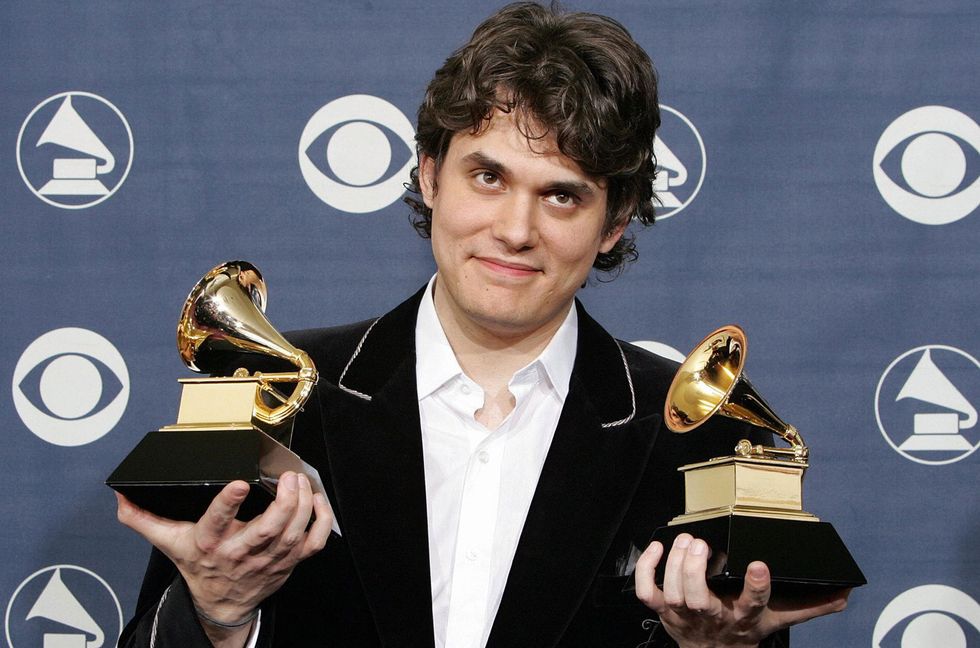20 Years Ago, For the First and Only Time in Grammy History, There Was No Overlap in the Nominees for Record and Song of the Year
One record wasn't eligible for the songwriting award. The others simply didn't get enough votes.

John Mayer poses with two trophies he won for Best Male Pop Vocal Performance and Song of the Year at the 47th Annual Grammy Awards in Los Angeles on Feb. 13, 2005.
When the nominations for the 67th annual Grammy Awards are announced on Friday Nov. 8, we’re likely to see considerable overlap in the nods for record of the year (which honors a specific recording of a song) and song of the year (which honors the song itself). Chappell Roan’s “Good Luck, Babe!,” Billie Eilish’s “Birds of a Feather” and Lady Gaga & Bruno Mars’ “Die With a Smile,” among others, are likely to wind up with nominations in both categories.
There is usually a fairly high degree of overlap in the nominations for these two high-profile awards. Last year, for example, five of the eight nominees for record of the year were also nominated for song of the year.
But that wasn’t the case when the nominations for the 47th annual Grammy Awards were announced on Dec. 7, 2004. For the first and still the only time in Grammy history, there was no overlap in the nominations in these two marquee categories.
One of the record of the year nominees, Ray Charles’ “Here We Go Again” (with Norah Jones), wasn’t eligible for song of the year. It was a remake of a Charles hit from 1967, which had reached No. 15 on the Billboard Hot 100. Grammy rules, which have fluctuated on this point over the years, don’t allow songs that are already prominent to be considered for song of the year.
The other four record of the year nominees competed for song of the year nominations and simply didn’t receive enough votes. They were The Black Eyed Peas’ “Let’s Get It Started,” Green Day’s “American Idiot,” Los Lonely Boys’ “Heaven” and Usher’s “Yeah!” (featuring Lil Jon and Ludacris).
Three of these songs were nominated for songwriting awards in genre categories. “American Idiot” was nominated for best rock song; “Yeah!” for best R&B song; and “Let’s Get It Started” for best rap song. “Heaven” was classified as pop in the Grammy process; there was no (and still is no) best pop song category.
The song of the year nominees, all of which also vied for record of the year nods (and likewise simply didn’t receive enough votes to wind up with nominations in that category) were John Mayer’s “Daughters,” Alicia Keys’ “If I Ain’t Got You,” Kanye West’s “Jesus Walks,” Tim McGraw’s “Live Like You Were Dying” and Hoobastank’s “The Reason.”
When the Grammy Awards were presented on Feb. 13, 2005, the Charles/Jones collab won record of the year. Mayer’s ballad won song of the year.

















